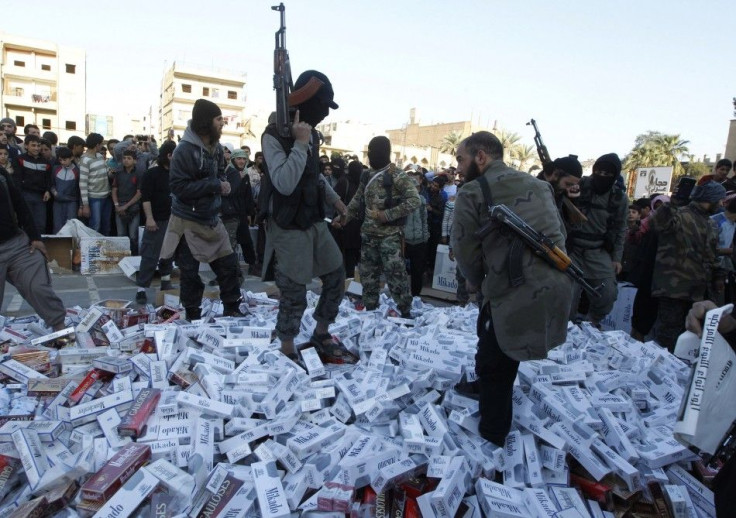ISIS Revealed: Top ISIS Commander Abu Ahmed Says 'No US Prison, No ISIS'

An ISIS senior commander has revealed the rise of ISIS would not be possible if not for the U.S. prison in Iraq. Abu Ahmed had entered Camp Bucca, a U.S.-run detention centre in Iraq, when he was a young man 10 years ago. He rose in the ranks of ISIS like other militants who had been serving time with him in prison.
In an exclusive report by the Guardian, the ISIS official said U.S. soldiers had taken him and his fellow detainees from Iraqi towns and cities and flown to a "desert fortress" that would establish the presence of the U.S. in Iraq.
Ahmed said in the report that other detainees had opened up to him and overcame their fear of imprisonment in Camp Bucca. He and the others saw an opportunity in the U.S.-run prison. Ahmed revealed that ISIS militants would never have come together the way they did in Baghdad if not for Camp Bucca. In the prison, the detainees plotting to form an extremist group would not only be safe inside the walls but they were also close to the location of the Al Qaeda leadership, he said.
Ahmed told the Guardian that it was in Camp Bucca where he met Abu Bakr al-Baghdadi, the leader of ISIS and is described in media as the world's most dangerous terrorist. He agreed to speak publicly since he is having "second thoughts" about the current practices of ISIS. The ISIS official said the brutality of the militant group has been going against his personal views as of late. He believes the teachings of the Q'uran can be interpreted in a different way and should not be read literally.
Meanwhile, the ongoing conflict in the Middle East has led the U.S. Senate Foreign Relations Committee to authorise the military campaign against ISIS which has become a party decision and intensified debate over war powers in the U.S. government.
According to New York Times, an unusual alliance between some Democrats and Republicans led to the approval. All Democrats were in favour of a measure authorising U.S. President Barack Obama's war against ISIS. However, they also voted to restrict the use of ground forces and set a deadline of operations to three years before Congress will tackle the matter again.




















